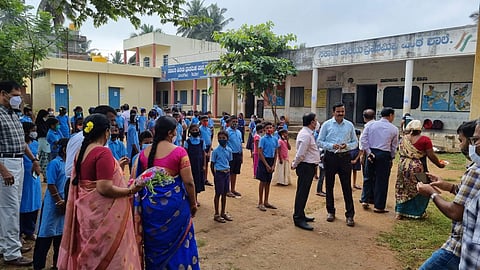

With the dip in COVID cases, states that have allowed resumption of in-person classes so far include Tamil Nadu, Madhya Pradesh, Jharkhand, Tripura, Haryana, Telangana, Pune and Nagpur in Maharashtra and Rajasthan
The Centre has not enforced on the states the mandatory parental consent for in-person school classes and has said that the decision to seek parental consent can be taken by the respective state and Union Territory governments, as per the latest guidelines regarding school reopening, released on Wednesday, February 2.
“The decision on whether or not parental consent is required for attending physical classes by the students may be taken by the respective states and UT governments,” reads the modified Standard Operating Procedures for reopening of schools. Under the previous set of guidelines issued on October 5, 2020, the states and UTs had to take the consent of parents or guardians. “Attendance must not be enforced and must depend entirely on parental consent,” said the clause in the earlier SOP, which has now been modified.
An official pointed out that the resurgence of COVID cases soon after the earlier SOP, issued on December 17, had forced authorities across the country to suspend classroom lectures again. “Now that schools are reopening across states, the SOP is being circulated again. It also takes into account the extensive vaccination coverage of people, including teaching and non-teaching staff,” the official said.
The modified SOPs also ask the states and the UTs to ensure a smooth transition of students from home-based schooling to formal schooling by the way of bridge courses after identifying the learning levels of the students. It has asked states to introduce large-scale remedial programmes to mitigate learning loss and ensure the emotional well-being of students and teachers.
To prevent dropouts, the Centre has urged states that have amended their state Right to Education (RTE) rules to allow for detention in classes V and VIII to consider relaxing the rules this year. With the dip in COVID cases, states that have allowed resumption of in-person classes so far include Tamil Nadu, Madhya Pradesh, Jharkhand, Tripura, Haryana, Telangana, Pune and Nagpur in Maharashtra and Rajasthan.
